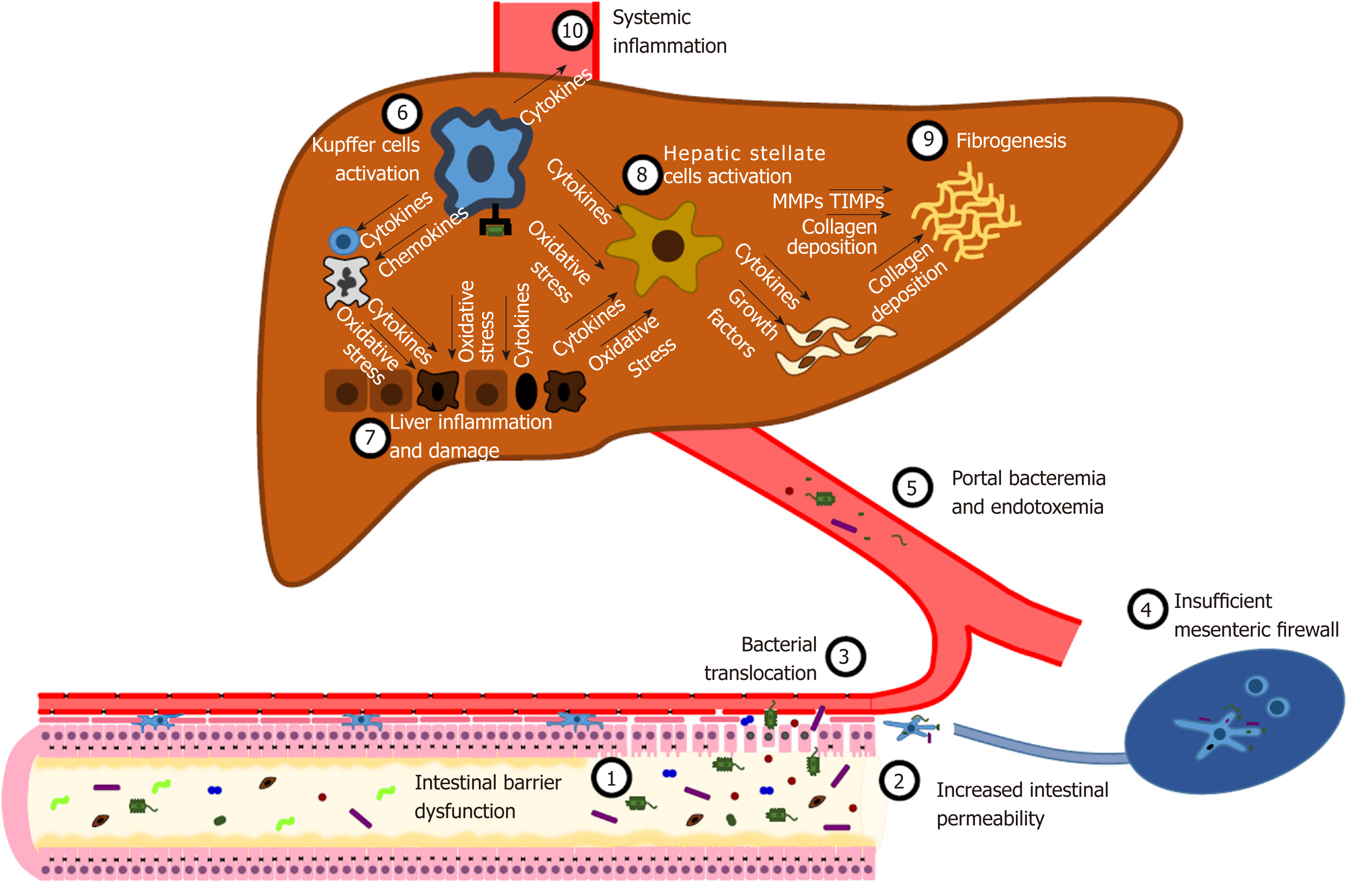Nonalcoholic fatty liver disease (NAFLD) is an intermediate condition characterized by changes in liver tissue and elevation in certain liver-specific enzymes. While not immediately life-threatening, untreated NAFLD may lead to more severe health conditions. As with many health conditions, there are coexisting factors that can contribute to NAFLD. We’ll address the contributing factor of an unhealthy colon and how a high-potency probiotic could help.
Depending on testing methods, upwards of 25% of Americans may suffer from this condition. Given the prevalence of NAFLD, it is reasonable to ask how it has become such a common health challenge. One possibility involves the influence of blood chemistries that provoke adaptive changes in liver tissue. Lipopolysaccharides are one class of chemistries involved in these changes.
The LPS Factor
Gram-negative bacteria shed lipopolysaccharides (LPS) in the digestive tract. In cases where there is an increase in intestinal permeability, such as with the presence of intestinal disease, LPS may enter the bloodstream, where it eventually enters the liver. The liver can become stressed if sustained exposure occurs, prompting protective measures. While well-intentioned, these protective measures contribute to harmful changes in the tissue and ultimately compromise the functionality of the liver.
The Gut Factor
Many dietary and environmental factors may contribute to a condition known as “leaky gut syndrome,” including herbicides, gluten-containing grains, candida albicans overgrowth, Small Intestinal Bacterial Overgrowth (SIBO), alcohol consumption as well as other food intolerances/allergies. Essentially any pro-inflammatory influence that is significant or prolonged enough may cause the intestinal lining to lose integrity. Under ideal circumstances, the intact tissue is very selective about what passes into the bloodstream. In a leaky gut scenario, undigested proteins and toxic chemicals may cross through the compromised intestinal lining, leading to unbalanced blood chemistry. Since many toxins find their way to the liver to be neutralized for elimination, any increase in exposure to these elements would necessarily stress the liver. This increased exposure can initiate the accumulation of fatty substances, which interfere with normal liver function.

Figure source: Nicoletti A, Ponziani FR, Biolato M, Valenza V, Marrone G, Sganga G, Gasbarrini A, Miele L, Grieco A. Intestinal permeability in the pathogenesis of liver damage: From non-alcoholic fatty liver disease to liver transplantation. World J Gastroenterol 2019; 25(33): 4814-4834 [PMID: 31543676 DOI: 10.3748/wjg.v25.i33.4814] Accessed 12/7/2022
The Role of Probiotics
One promising strategy to improve intestinal barrier function employs a high-potency probiotic containing bacterial species known to assist in resolving inflammation in the digestive tract. In a 2019 clinical study, the probiotic formula Visbiome (also known as VSL #3 or the De Simone Formulation) was shown to improve liver conditions in patients diagnosed with NAFLD. Several mechanisms were proposed to explain this outcome. Aside from the anticipated reduction of inflammatory processes in the gut, probiotics also have the potential to inhibit pathogenic bacteria and improve immune function.


Fortunately, NAFLD is reversible if caught early. Along with other lifestyle changes and assuming no additional liver pathologies, removing the negative stimulus of LPS exposure may encourage a return to normal tissue tone and function. If you have been diagnosed with NAFLD, you may want to consider adding Visbiome to your routine.
References
López-Velázquez, J. A., Silva-Vidal, K. V., Ponciano-Rodríguez, G., Chávez-Tapia, N. C., Arrese, M., Uribe, M., & Méndez-Sánchez, N. (2014). The prevalence of nonalcoholic fatty liver disease in the Americas. Annals of hepatology, 13(2), 166–178.
Duseja, A., Acharya, S. K., Mehta, M., Chhabra, S., Shalimar, Rana, S., Das, A., Dattagupta, S., Dhiman, R. K., & Chawla, Y. K. (2019). High potency multistrain probiotic improves liver histology in nonalcoholic fatty liver disease (NAFLD): a randomized, double-blind, proof of concept study. BMJ open gastroenterology, 6(1), e000315. https://doi.org/10.1136/bmjgast-2019-000315
Dhiman, R. K., Rana, B., Agrawal, S., Garg, A., Chopra, M., Thumburu, K. K., Khattri, A., Malhotra, S., Duseja, A., & Chawla, Y. K. (2014). Probiotic VSL#3 reduces liver disease severity and hospitalization in patients with cirrhosis: a randomized, controlled trial. Gastroenterology, 147(6), 1327–37.e3. https://doi.org/10.1053/j.gastro.2014.08.031
Loguercio, C., Federico, A., Tuccillo, C., Terracciano, F., D’Auria, M. V., De Simone, C., & Del Vecchio Blanco, C. (2005). Beneficial effects of a probiotic VSL#3 on parameters of liver dysfunction in chronic liver diseases. Journal of clinical gastroenterology, 39(6), 540–543. https://doi.org/10.1097/01.mcg.0000165671.25272.0f
Madsen, K., Cornish, A., Soper, P., McKaigney, C., Jijon, H., Yachimec, C., Doyle, J., Jewell, L., & De Simone, C. (2001). Probiotic bacteria enhance murine and human intestinal epithelial barrier function. Gastroenterology, 121(3), 580–591. https://doi.org/10.1053/gast.2001.27224
Nicoletti A, Ponziani FR, Biolato M, Valenza V, Marrone G, Sganga G, Gasbarrini A, Miele L, Grieco A. Intestinal permeability in the pathogenesis of liver damage: From non-alcoholic fatty liver disease to liver transplantation. World J Gastroenterol 2019; 25(33): 4814-4834 [PMID: 31543676 DOI: 10.3748/wjg.v25.i33.4814]



